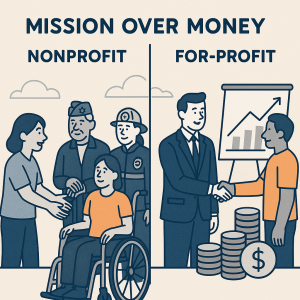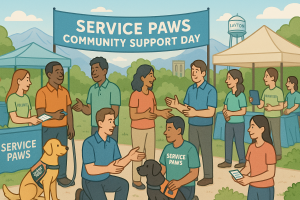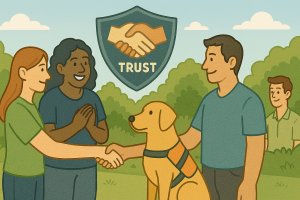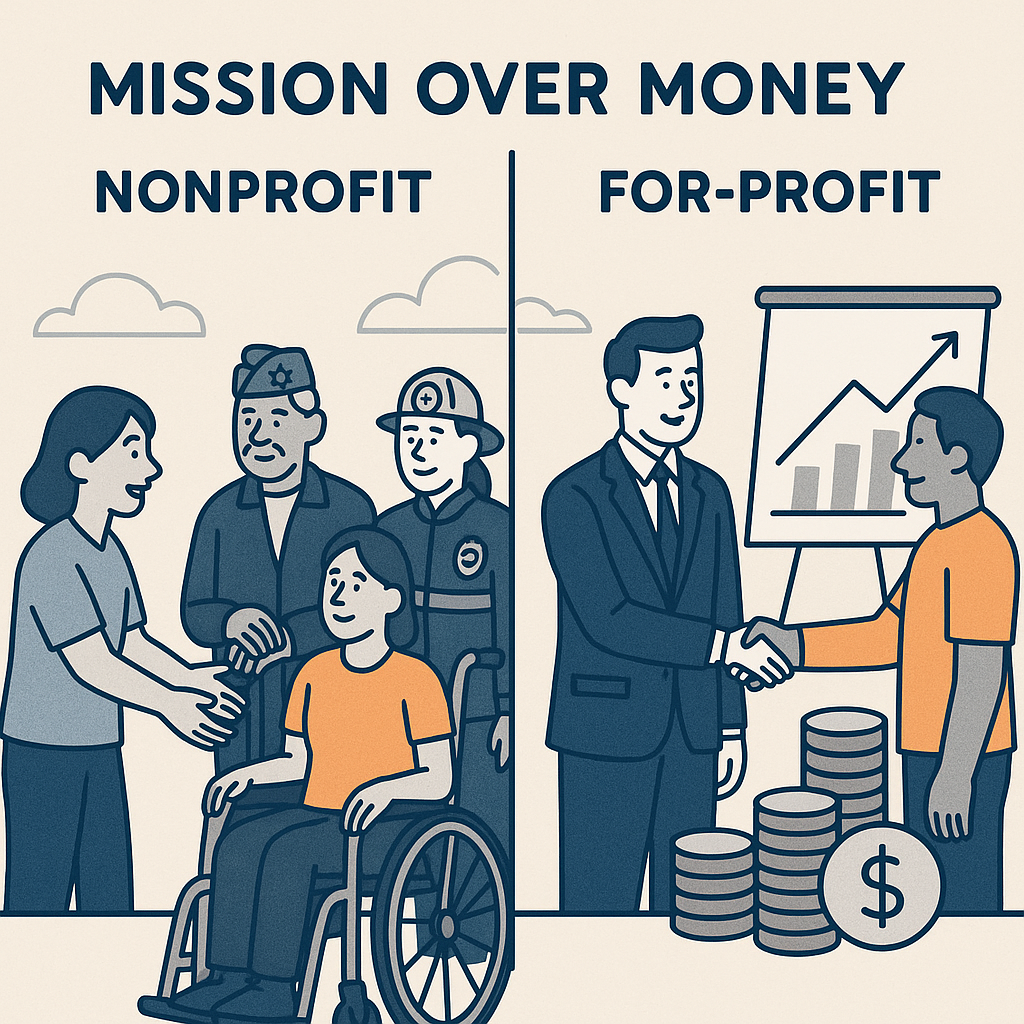Nonprofit vs. For-Profit: Why Choosing a Nonprofit to Train Your Service Dog Makes a Difference
When it comes to training a service dog, the organization you choose can profoundly affect not only the cost and quality of the training, but also the values behind it. At first glance, both nonprofit and for-profit service dog organizations might seem to offer similar services, but a deeper look reveals key differences in mission, affordability, and long-term support.
Here’s why choosing a nonprofit to train your service dog often offers greater benefits and peace of mind:
✅ 1. Mission Over Money
Nonprofit organizations are mission-driven. Their primary goal is to improve lives, not to generate profits. Whether it’s supporting veterans, people with disabilities, or first responders, nonprofits prioritize impact, not income.
In contrast:
For-profit companies operate to maximize revenue. That often means high training fees, upcharges for additional services, and limited financial assistance.

💰 2. Lower Costs & Financial Assistance
Training a service dog through a for-profit company can easily cost $20,000–$50,000 or more. Nonprofits often subsidize these costs through donations, grants, and community support, offering services for free or significantly reduced rates.
Many nonprofits also provide:
- Scholarships or sliding scale fees
- Fundraising assistance
- Donation-based support programs

🐶 3. Community-Centered Support
Nonprofits are often rooted in the communities they serve. This means clients often become part of a supportive network that includes:
- Ongoing handler education
- Peer mentorship
- Volunteer opportunities
- Community events and advocacy
For-profit models typically end services after delivery, while nonprofits offer lifelong resources and support.
🧠 4. Ethics & Transparency
Registered 501(c)(3) nonprofits are required to follow strict legal and ethical standards, including:
- Annual financial reporting (IRS Form 990)
- Public accountability
- Board governance
This means you can see where the money goes, how decisions are made, and who is leading the organization. That kind of transparency is not required of for-profit businesses.
🐕🦺 5. Individualized, Handler-Focused Training
Many nonprofits, like Service Paws, use owner-assisted training models, empowering the handler to train alongside the dog. This strengthens the bond, enhances trust, and ensures the dog is truly attuned to their handler’s unique needs.
Some for-profit companies follow rigid training models that may not allow for this personal connection or hands-on involvement.


🤝 6. Trust Built on Integrity
Nonprofits exist because of trust, from donors, volunteers, and the people they serve. Their reputations are built on compassion, dedication, and community impact. When you choose a nonprofit, you’re choosing an organization whose heart is aligned with your independence and well-being.
Final Thoughts
Choosing a nonprofit to train your service dog is about so much more than cost, it’s about aligning yourself with an organization that truly prioritizes you. Nonprofits aren’t motivated by profit margins or sales quotas; they are driven by mission, compassion, and the belief that independence should be accessible to everyone, regardless of financial circumstances.
When you partner with a nonprofit, you’re not just receiving a trained dog, you’re becoming part of a community. You gain access to continued support, peer connections, and a team that’s invested in your success well beyond graduation day. From personalized training to lifelong guidance, nonprofits walk beside you every step of the way.
In a world where too many services are transactional, nonprofits offer something deeper: a commitment to empowerment, trust, and transformation. They don’t just train dogs, they help rebuild confidence, restore dignity, and open doors to greater freedom and connection.
At the heart of it all, choosing a nonprofit means choosing an organization that sees your worth, respects your journey, and is here to support you, not just for today, but for a lifetime.

